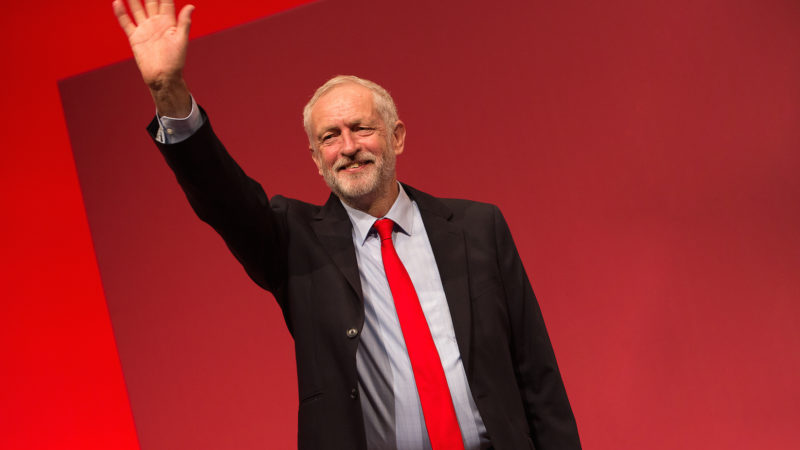
In a statement last night that followed a seven-hour cabinet meeting, the Prime Minister reached out and offered to meet with Jeremy Corbyn to find a way through the Brexit impasse. Unlike most of her previous televised statements at Downing Street, this is a game-changer. The focus is now on the Labour leader: will he stop Brexit or push for Labour’s alternative deal?
The first reaction of many Labour activists has been to question whether May’s offer of compromise is genuine. They are right to be wary of someone who has helped portray Corbyn as a terrorist sympathiser and a danger to national security, and who has consistently prioritised party unity over anything else. It does seem unbelievable that she would concede on customs union membership when the ability to strike independent trade deals is the main point of Brexit for many Tories.
But perhaps May feels that she has little to lose, apart from the prospect of passing a Brexit deal, which has always been her core mission as Prime Minister. Leaks from the cabinet meeting certainly suggest that a softening is on the cards, and importantly it is now clear that she will not countenance no deal. May also desperately wants to avoid European elections, which requires getting a deal through as quickly as possible.
Corbyn has accepted the offer of talks. In his immediate response, which you can read in full here, he said Labour’s five demands for Brexit would be “on the table” in the negotiations today. There was no mention of another referendum. This is a crunch moment for Labour, and the bone of contention is where the party stands on the limitations of the ‘confirmatory public vote’ plan. In the indicative votes process, the leadership has whipped for amendments pledging to put “any” deal to a public vote – including, presumably, Labour’s alternative. But Corbyn’s spokesman told journalists last week that the party only supports a referendum on a “damaging Tory Brexit”. And on Radio 4 today, Rebecca Long-Bailey suggested that the ‘indicative’ motions were merely compromises.
Theresa May would far sooner accept Labour’s deal than agree to hold another public vote, and neither she nor the Labour leadership want a long extension (though that may be inevitable at this point). Will complying with Corbyn’s five demands be enough to win a Labour whip in favour of the deal? Or will he also demand a ‘confirmatory ballot’, to satisfy the wishes of many Labour MPs despite he and key allies personally disliking the idea?
Groups such as Another Europe is Possible have already warned the Labour leader not to “fall into the trap”. Agree to any Brexit deal and you will get the blame, they say. But it isn’t clear how Labour can reasonably push for its alternative Brexit for so long, then turn down the chance to implement that very deal. The other main concern is that the next Tory leader – for we know that May has promised to step down once this stage of Brexit is completed, and her position will be particularly untenable if Corbyn actually is put in charge of Brexit – could undo any-cross party agreement reached now. Yet that is true of anything: no parliament can pass laws that future parliaments cannot change. Labour has never said it only wants its alternative deal implemented if Corbyn has the keys to No10.
The bottom line is that the leadership has never said it wants to stop Brexit, only that it wants to respect the 2016 result. Going back on that now would be surprising, whatever your interpretation of the party conference policy.
Sign up to LabourList’s morning email for everything Labour, every weekday morning.



More from LabourList
Delivering in Government: your weekly round up of good news Labour stories
‘Forgotten fathers: pipefitters, plumbers and the paternity pay gap’
‘How can Britain build peace for Palestinians without owning its own past?’